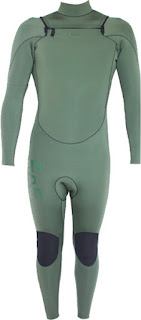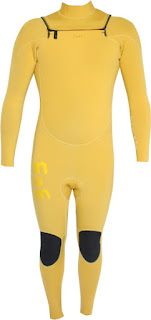Yulex and Limestone Neoprene
We work with the same process we use for clothes to design our surfing wetsuits.
- Design: working on fits, details and style.
- Choice of the best workshops to make the products.
- Fabrics selection. We always use finest fabrics to make quality products.
For wetsuit category, we use the best: "limestone neoprene" & "Yulex Natural Rubber"
Learn more below.
What is Limestone neoprene ?
- Created by Japanese company Yamamoto, "limestone" neoprene is made from limestone and not from petro-chemical industry.
- This limestone sourced rubber has uncommon specificiations: Nitrogen gas blown rubber that augments the insulation of the wetsuit, making it warmer. A 23% higher closed-cell structure than oil derived neoprene, making it more buoyant. Maximum elongation of over 480%, whereas human skin stretches only up to 60 to 70%. 98% waterproof whereas oil derived standard is nearly 70%.
- This wetsuits are more "eco-friendly" than classic neoprene products. And we are working on a recycling program that could allow us to go more green in our business.
- "limestone" neoprene is way more expensive than a classic neoprene but with our business model cutting classic distribution network costs, we make it affordable and today you can buy a limestone neoprene wetsuit, handmade in a specialist workshop for same price as a classic wetsuit.
Limestone neoprene wetsuit is LIGHTER, WARMER and LAST LONGER than any other wetsuit.
Limestone neoprene wetsuit is LIGHTER, WARMER and LAST LONGER than any other wetsuit.
FRA:
We use the same quality approach for our wetsuits as for our textile collections.
We use the same quality approach for our wetsuits as for our textile collections.
- The design by working on the cuts, the details and the style of the product.
- The choice of the best workshops offering a unique know-how to assemble the products.
- And especially the choice of materials. We always use the most noble materials in order to offer quality products. For the combinations, the "limestone neoprene" and the "Yulex natural rubber"
What is neoprene "limestone"?
- Developed by the Japanese company Yamamoto, neoprene limestone is made from limestone and not from the petrochemical industry. This means that neoprene does not contain oil.
- The specificities of neoprene are much better than a classic neoprene: warmer, more flexible, lighter, it does not absorb water (98% waterproof against 70% for a neoprene made of petroleum), and offers a better life span.
- These suits are therefore more eco-friendly and we are also working on a program to recycle products at the end of their life.
- Limestone neoprene is much more expensive, but our business model is designed to cut the costs associated with traditional distribution. We sell our wetsuits directly and through a small but selective network of specialized surf shops, which allows us to offer them at reasonable prices.
A neo surf suitprene limestone is lighter, warmer and lasts longer than any other material.orte what a combination.
A neo surf suitprene limestone is lighter, warmer and lasts longer than any other material.orte what a combination.
---
2016 has sein the arrival of a new fabric in wetsuit industry: Yulex™ Natural Rubber
What is YULEX ?
Yulex brings non-sensitizing, high performing, 100% plant based, specialty natural rubber materials to consumers and brands.
YULEX & PATAGONIA brand developped a natural rubber wetsuit.
Made from sap of Hevea tree, being grown on Forest Stewardship Council certified plantations in Guatemala, Hevea rubber is the best-performing alternative to neoprene, and it can be sourced in a way that don't contribute to deforestation.
As of Fall 2016, the Yulex® natural rubber in surfing wetsuits comes from sources that are Forest Stewardship Council® (FSC) certified by the Rainforest Alliance.
After being tapped from hevea trees, the raw latex is refined by our partners at Yulex in a proprietary process that removes over 99% of impurities-including the proteins that cause latex allergies-and results in a stronger, non-sensitizing natural elastomer.
Because the polyisoprene polymer is produced in trees instead of factories, using solar energy instead of generated electricity, up to ~80% less climate-altering CO2 is emitted in the manufacturing process when compared to traditional neoprene.
Still the material of choice for a wide range of products with demanding performance requirements, such as airplane tires and medical gloves, natural rubber is both stronger and more flexible than its synthetic substitutes. Its strength, elasticity and consistent stretch transfer superbly into wetsuits—meaning that not only are we not contributing to deforestation, Yulex natural rubber is a step
Most importantly, since only 0.5% of the world's rubber supply currently comes from FSC certified sources, we hope our choice will motivate other businesses to incorporate more sustainable practices in their supply chains.
At SEN NO SEN, we decided to follow the path opened by PATAGONIA in their eco-friendly policy and weve just started to use Yulex for making surfing wetsuits.
At this stage, ind of 2016, we are testing first Yulex wetsuits made in our workshop before to launch it on the market in 2017... more infos soon, stay tuned!
FRA:
YULEX is a company that brings to consommates and brands of mamaterials in natural rubber specialized non-sensitizing, high-performance, 100% plant-based products.
YULEX and the American brand PATAGONIA have developed a natural rubber for surfing suits.
Made from the sap ofa tree, lHevea which is grown on FSC (Forest Stewardship CouncilTM ) certified plantations in Guatemala. The rubber of rubber trees representse the best performing alternative to neoprene, and phad be harvested in a way that does not contribute toe not deforestation.
As of fall 2016, the YulexTM natural rubber in the surf suits comes from Rainforest Alliance FSC certified sources.
After harvesting the raw latex from the rubber trees, Yulex processes it using a patented process that removes more than 99% of impurities, including the proteins responsible for latex allergy, which results in a stronger and hypoallergenic natural elastomer.
Since this polyisoprene polymer is produced by trees and not in factories, using solar energy rather than electricity, the manufacturing process involves a reduction of nearly 80% in CO2 emissionsThis is a more environmentally friendly alternative to the production of traditional neoprene.
Stronger and more flexible than its synthetic counterparts, natural rubber remains the material of choice for a wide range of products with high performance requirements, such as aircraft tires and medical gloves.
It's strong, elastic and stretchy, making it perfect for wetsuits. So not only do we not contribute to deforestation, but we use YulexTM natural rubber, which is also a performance asset.
More importantly, since only 0.5% of the world's natural rubber resources come from FSC-certified sources, we decided to follow PATAGONIA in their environmental policy and therefore we also use Yulex for our wetsuits.
A ce stade, fin 2016 nous testons les p







